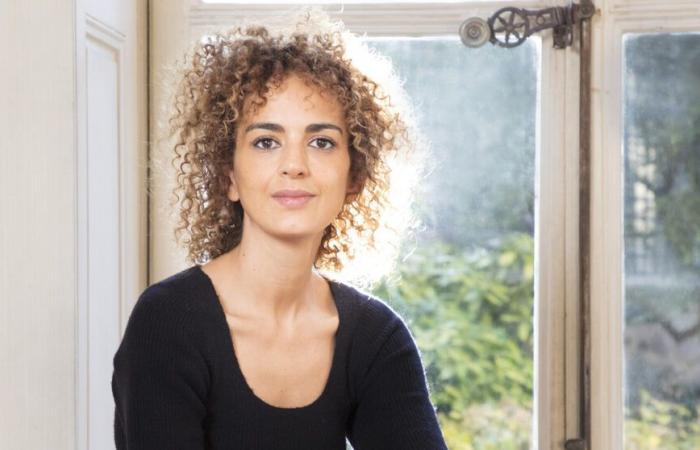Leïla Slimani concludes her trilogy on the history of her family in Morocco with a magnificent third part, in which she portrays herself, until her arrival in Paris.
Leïla Slimani won the Goncourt prize at only 35 years old and a second novel, sweet songin 2016. And since then, it’s as if she had never stopped wanting to prove that she had deserved it, this greatest literary prize.
No question, therefore, of resting on one’s laurels: just after sweet songshe set out to write not one novel – in addition to writing essays, an investigation into sexuality in Morocco, etc. – but three. A trilogy recounting the life and developments of his family – and especially his women – over three generations in Morocco. Large and very ambitious project, vast postcolonial fresco like we lack in France, The Land of Others began with the installation of Slimani’s grandmother, here called Mathilde, born in France, with her Moroccan husband in Morocco in the 1940s.
The final volume of the trilogy
Five years later, I will take away the fire is the last volume. Ample, romantic, melancholic, but also full of energy, this final part features its own generation, through Mia and Inès – the writer’s alter ego – the daughters of Mehdi and Aïcha. The father, Mehdi, became a banker, loving justice and the well-being of his employees; the mother, Aïcha, is a gynecologist, committed to the rights of Moroccan women to control their bodies. Mia, their eldest daughter, is homosexual, which she will have to hide (she will understand this by enduring the violence of boys), and Inès, the youngest, is also in search of emancipation.
Not only does Leïla Slimani excel at writing family relationships, intense affection as well as moments of disaffection, each person’s relationship to speech, what is said and what is not said, but she also makes us feel which makes this family a united clan, almost a secret society in its own country, whose bigotries it does not embrace. The question that the writer presents here is the following: what does it mean to live in a country where you are forced to hide, to conceal your truth and your thoughts? It’s living while being split in two, a lesson that little girls, then young women, end up integrating. And yet, they pay the price for their refusal to comply with the injunctions and corruption of a society. Arrested and incarcerated following a slanderous accusation fabricated by the authorities, Mehdi will eventually find freedom, but deserted by his friends, he will die very quickly after his release from prison. The character of Mehdi, highly moral, is magnificent and moving. To speak with his daughters, to transmit wisdom and love to them, he gives them books and readings. But what to convey with this tragedy?
-A story of incisive accuracy
Leïla Slimani, who had already given the essential and cruel account of this fundamental injustice in a directly autobiographical text, The scent of flowers at night (Stock), signs here a great book on solitude. Her entire trilogy is based on the constant tensions between the individual and the collective, between intimate life and freedom on the one hand, and the injunctions of a country and its beliefs on the other, between women’s rights and a patriarchy. profoundly liberticidal.
Everyone is entitled to their moment, to their chapter. Everyone is united with others and alone at the same time, solitary and isolated. First there is the solitude of never being able to tell the truth, the isolation imposed by injustice and gaslighting, separation, and finally the solitude of exile in France. Here again, Slimani captures with sharp accuracy these moments of unease in the face of a new injunction, insidious this time, imposed on the two young girls: that of integrating, of becoming “French”, constantly reminded by their friends, who They remain “others”, eternal strangers.
An embodied text
This is what makes I will take away the fire the most inhabited text, the most embodied of the three volumes, and perhaps the best book by Leïla Slimani (with The scent of flowers at night). What does one become when one lives, since birth, from Morocco to France, in the “country of others”? Writer. This is the character Mia, the big sister, will become. Returning to the footsteps of his ancestors to reconstruct the whole story. And one day write, like Leïla Slimani, an intense counter-narrative, against the fabricated narratives that silence, imprison, and kill.
I will take away the fire – The Land of Others 3 of Leila Slimani (Gallimard) 432 p. 22.90 euros. In bookstores January 23






